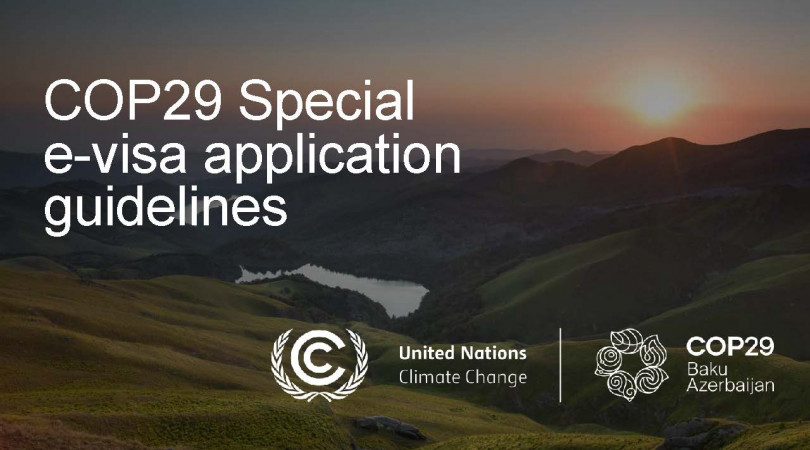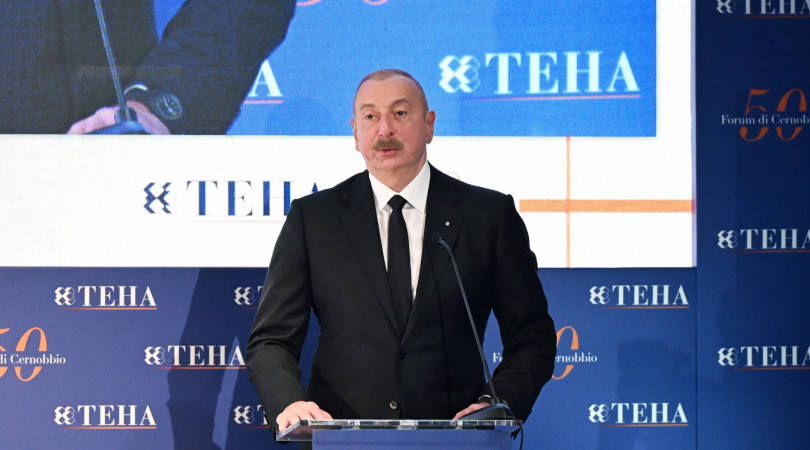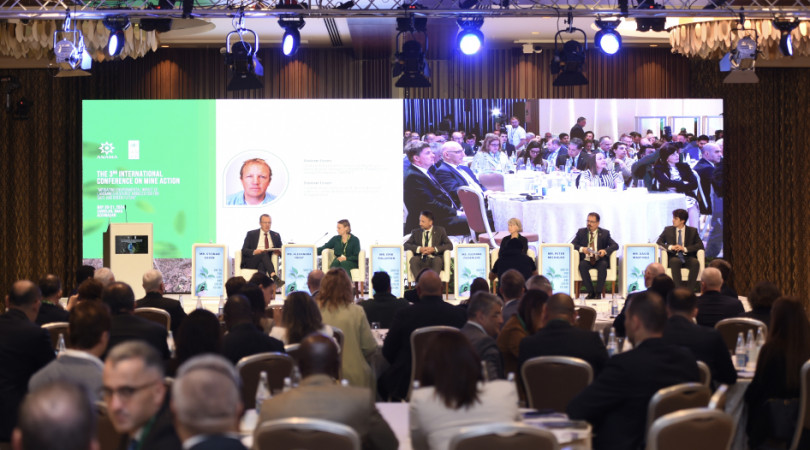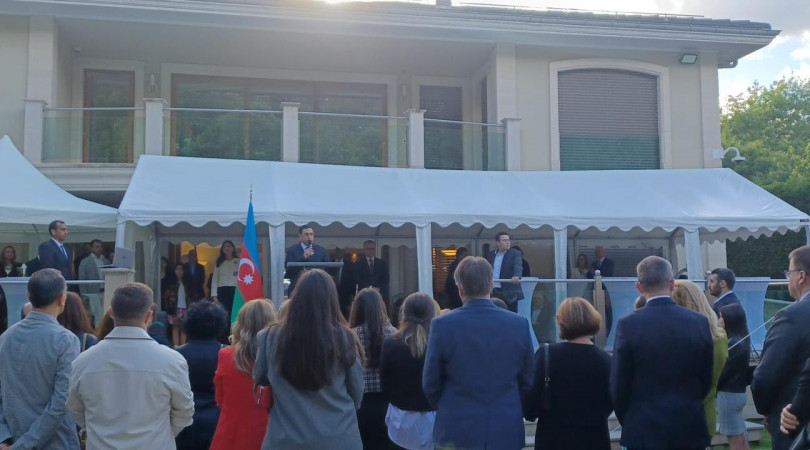UN Economic Commission for Europe (UNECE)
United Nations Economic Commission for Europe (UNECE)
The United Nations Economic Commission for Europe (UNECE) was set up in 1947 by ECOSOC. It is one of five regional commissions of the United Nations with headquarters in Geneva, Switzerland.
UNECE's major aim is to promote pan-European economic integration. UNECE includes 56 member States in Europe, North America and Asia. However, all interested United Nations member States may participate in the work of UNECE.
As a multilateral platform, UNECE is mandated to facilitate greater economic integration and cooperation among its member countries and promotes sustainable development and economic prosperity through:
- policy dialogue;
- negotiation of international legal instruments;
- development of regulations and norms;
- exchange and application of best practices as well as economic and technical expertise;
- technical cooperation for countries with economies in transition.
UNECE contributes to enhancing the effectiveness of the United Nations through the regional implementation of outcomes of global United Nations Conferences and Summits. It gives focus to the United Nations global mandates in the economic field, in cooperation with other global players and key stakeholders, notably the business community.
UNECE also sets out norms, standards and conventions to facilitate international cooperation within and outside the region.
The Republic of Azerbaijan and UNECE
The Republic of Azerbaijan became a member of the UNECE on 30 July 1993.
Official visits of the UNECE Executive Secretaries to the Republic of Azerbaijan:
- 23 November 2011 - Ján Kubiš (Slovakia);
- 1-2 December 2013 - Sven Alkalaj (Bosnia and Herzegovina);
- 22-23 November 2016 - Christian Friis Bach (Denmark);
- 29-30 November 2018 - Olga Algayerova (Slovakia).
On 29-30 November 2018 Executive Secretary of the UNECE Ms. Olga Algayerova (Slovakia) paid an official visit to the Republic of Azerbaijan. Within the framework of the visit a Joint Declaration on cooperation for the implementation of Sustainable Development Goals was signed between the Government of Azerbaijan and UNECE. The document was signed by Mr. Ali Ahmadov, Deputy Prime Minister of the Republic of Azerbaijan and Chairperson of the National Coordination Council for Sustainable Development, and Ms. Olga Algayerova, Executive Secretary of UNECE.
The Government of Azerbaijan and UNECE declared their intention to closely cooperate for the implementation and activities aimed to achieve the SDGs and work together to identify national priorities for sustainable development and their indicators. Alignment of national programmes and strategies covering economic areas will be another field of cooperation.
The Joint Declaration envisaged promotion of close cooperation in the areas of trade capacity building and trade facilitation; renewable energy and energy efficiency; investments, technology and innovation; green economy; application of green technologies; environmental monitoring system; protection of water resources; addressing air pollution and environmental degradation; forests; and agricultural quality standards.
The parties agreed to assess the implementation of the document in three years with a view of taking further measures to enhance mutual cooperation.
Azerbaijan is a party to all five environmental conventions under UNECE:
1. Convention on Environmental Impact Assessment in a Transboundary Context (01.02.1999)
2. Convention on Access to Information, Public Participation in Decision-making and Access to Justice in Environmental Matters (09.11.1999)
3. Convention on the Protection and Use of Transboundary Watercourses and International Lakes (14.03.2000)
4. Convention on Long-range Transboundary Air Pollution (09.04.2002)
5. Protocol on Water and Health (22.10.2002)
6. Convention on the Transboundary Effects of Industrial Accidents (04.05.2004)
7. Amendments to the article 25 and 26 of the Convention on the Protection and Use of Transboundary Watercourses and International Lakes (22.11.2013)
The Republic of Azerbaijan is also a party to a number of legal instruments under UNECE in the area of transport and customs:
1. Customs Convention on the International Transport of Goods under Cover of TIR Carnets (TIR Convention) of 14 November 1975 (12.06.1996)
2. European Agreement on Main International Traffic Arteries (AGR) of 15 November 1975 (16.08.1996)
3. European Agreement concerning the Work of Crews of Vehicles engaged in International Road Transport (AETR) of 1 July 1970 (16.08.1996)
4. Agreement on the International Carriage of Perishable Foodstuffs and on the Special Equipment to be Used for such Carriage (ATP) of 1 September 1970 (08.05.2000)
5. Customs Convention on the Temporary Importation of Commercial Road Vehicles of 18 May 1956 (08.05.2000)
6. International Convention on the Harmonization of Frontier Controls of Goods of 21 October 1982 (08.05.2000)
7. European Agreement concerning the International Carriage of Dangerous Goods by Road (ADR) of 30 September 1957 (28.09.2000)
8. Protocol amending article 1 (a), article 14 (1) and article 14 (3) (b) of the European Agreement of 30 September 1957 concerning the International Carriage of Dangerous Goods by Road (ADR) of 28 October 1993 (28.09.2000)
9. Agreement Concerning the Establishing of Global Technical Regulations for Wheeled Vehicles, Equipment and Parts which can be fitted and/or be used on Wheeled Vehicles of 25 June 1998 (15.04.2002)
10. Agreement Concerning the Adoption of Uniform Technical Prescriptions for Wheeled Vehicles, Equipment and Parts which can be fitted and/or be used on Wheeled Vehicles and the Conditions for Reciprocal Recognition of Approvals Granted on the Basis of these Prescriptions of 20 March 1958 (15.04.2002)
11. Convention on Road Traffic of 8 November 1968 (03.07.2002)
12. Customs Convention on Containers of 2 December 1972 (17.01.2005)
13. Convention on the Contract for the International Carriage of Goods by Road (CMR) of 19 May 1956 (18.09.2006)
14. Convention on Road Signs and Signals of 8 November 1968 (22.02.2011)
15. European Agreement supplementing the Convention on Road Signs and Signals (1968) of 1 May 1971 (11.07.2011)
16. Protocol and Road Markings, Additional to the European Agreement supplementing the Convention on Road Signs and Signals of 1 March 1973 (11.07.2011)
UNECE events organized in Azerbaijan
- The second Steering Committee meeting under the EU Water Initiative National Policy Dialogue in Azerbaijan (7 - 8 June 2012), Baku, Azerbaijan
- Third UNECE Forum of Women Entrepreneurs (14 - 15 November 2012), Baku, Azerbaijan
- Fifth Session of the SPECA Project Working Group on Knowledge-based Development (4 December 2013), Baku, Azerbaijan
- The third NPD Steering Committee meeting (23 January 2014), Baku, Azerbaijan
- National Round-table Discussion on Legal Implementation of the Protocol on SEA in Azerbaijan (28 August 2014), Baku
- UNECE assisted Azerbaijan in developing its legislation in Environmental Impact Assessment and Strategic Environmental Assessment (28 October 2014)
- Training session on the use of Indicators and Criteria under the Industrial Accidents Convention (30 - 31 October 2014), Baku, Azerbaijan
- Workshop on Air Pollutant Emission Inventories (11 - 13 November 2014), Baku, Azerbaijan
- Implementing the Espoo Convention and its Protocol on SEA in national legislation in Azerbaijan (2 March 2015), Baku, Azerbaijan
- Training workshop (Part I) 'Practical application of the SEA in the alternative and renewable energy sector in Azerbaijan in line with Draft Law on EIA' (3 - 4 March 2015), Start-up workshop: SEA scoping and baseline analysis
- Training workshop (Part II) 'Practical application of the SEA in the alternative and renewable energy sector in Azerbaijan in line with Draft Law on EIA and Scoping consultations" (11 - 12 May 2015), Baku, Azerbaijan
- UNECE-FAO UNDA project national workshop in Azerbaijan (23 - 25 September 2015), Baku, Azerbaijan
- National workshop “The UNECE-WHO/Europe Protocol on Water and Health: supporting progress to achieve equitable access to water and sanitation in Azerbaijan" (29 September 2015), Baku, Azerbaijan
- Development of key registers in land administration in the UNECE region (28 - 30 October 2015), Baku, Azerbaijan
- SEA for the National Strategy on use of alternative and renewable energy sources in the Republic of Azerbaijan in 2015 – 2020. Public Consultation Workshop (9 December 2015), Baku, Azerbaijan
- The 5th National Policy Dialogue (NPD) Steering Committee (25 February 2016), Baku, Azerbaijan
- Seventh International Forum on Energy for Sustainable Development (18 - 21 October 2016), Baku, Azerbaijan
- 3rd Session of the Group of Experts on Energy Efficiency (18 - 19 October 2016), Baku, Azerbaijan
- The role of Strategic Environmental Assessment in renewable energy planning (21 October 2016), Baku, Azerbaijan
- 3rd Session Group of Experts on Renewable Energy (20 - 21 October 2016), Baku, Azerbaijan
- SPECA meeting Thematic Working Group Water Energy and Environment (20 - 21 October 2016), Baku, Azerbaijan
- Eleventh session of the SPECA Governing Council (23 November 2016), Ganja, Azerbaijan
- 2016 SPECA Economic Forum (22 - 23 November 2016), Ganja, Azerbaijan
- The 6th NPD Steering Committee (26 April 2017), Baku, Azerbaijan
- Training workshop on implementation of strategic environmental assessment (SEA) procedure in Azerbaijan (4 - 5 April 2018), Baku, Azerbaijan
- Environmental assessment system in Azerbaijan: The benefits and way forward - Final dissemination event on SEA and EIA component within the EU EaP GREEN (6 April 2018), Baku, Azerbaijan
- The 7th NPD Steering Committee (4 July 2018), Baku, Azerbaijan
- Tenth Session of the SPECA Working Group on Knowledge-based Development (4 - 5 July 2018), Baku, Azerbaijan
- Consultation Meeting/workshop on the Protocol on Water and Health and equitable access to water and sanitation in Azerbaijan (5 July 2018), Baku, Azerbaijan
- National Forest Policy Dialogue "Updating the National Forestry Program (NFP) and restructuring the forestry institution in Azerbaijan" (11 - 12 July 2018), Baku, Azerbaijan
- Stakeholder Workshop on the National Forestry Plan revision and modernization of forest management system (21 - 21 February 2019), Baku, Azerbaijan
Ms. Olga Algayerova, UNECE Executive Secretary’s video message was sent to address the participants of the Baku Forum on Sustainable Development help in Baku on 25-26 October 2018.
UNECE publications on Azerbaijan
- 1st Environmental Performance Review of Azerbaijan, 2004;
- 2nd Environmental Performance Review of Azerbaijan, 2011;
- Country Profile on Housing Sector: Azerbaijan 2010;
- Policy Brief: Improving welfare in the Alazani/Ganykh River Basin region through a transboundary nexus approach (October 2017)
Areas of Cooperation
Water
The National Policy Dialogue (NPD) in Integrated Water Resources Management in Azerbaijan started with the signing of the Memorandum of Understanding between the UNECE and Ministry of Ecology and Natural Resources of the Republic of Azerbaijan in 2010.
Key achievements:
- The National Water Strategy has been drafted. It will be submitted to the Cabinet of Ministers for approval in 2019.
- In August 2018, the first set of the national targets under the UNECE-WHO/Europe Protocol on Water and Health was adopted by a Joint Decree of the Minister of Ecology and Natural Resources and the Minister of Health.
- The last round of bilateral consultations between Azerbaijan and Georgia on the draft co-operation agreement on the Kura river basin was organized with the support of UNECE in October 2017.
- Developments in negotiating a bilateral agreement with Georgia on the joint management of the transboundary Kura river basin have been reported and discussed at the NPD Steering Committee meetings (last NPD meeting: July 2018).
- A pilot project was completed for testing the approach of the water-food-energy-ecosystems nexus in the transboundary Alazani/Ganykh river basin, which is shared by Azerbaijan and Georgia.
- A benchmarking study on water utilities has strengthened the capacity of Azerbaijani authorities to monitor the performance of the water supply and sanitation sector. This already contributes to improved policy making in the Water Supply and Sanitation (WSS) sector.
Currently the Parties are preparing to sign a new MoU on National Policy Dialogue.
Forest
Azerbaijan is strengthening its forest sector with a new ten-year national forestry programme, developed with UNECE support. The new National Forestry Programme and its Action Plan for the period 2020 to 2030 were finalized and presented at a meeting on 14 June 2019, in Baku, Azerbaijan jointly organized by the Ministry of Ecology and Natural Resources of Azerbaijan together with the joint UNECE/FAO Forestry and Timber Section and the FAO Partnership and Liaison Office in Azerbaijan.
The National Forestry Programme was drafted within the framework of a project on the revision of the national forestry programme and the modernization of the forest management system which was supported by UNECE and jointly implemented by the Food and Agriculture Organization of United Nations (FAO) and the Ministry of Ecology and Natural Resources of Azerbaijan. The National Forestry Programme provides a sound legal basis for forest management and ensures the development of institutional capacities
The sustainable development of forests is among the main priorities of the government of Azerbaijan. In May 2019, Azerbaijan joined the international Bonn Challenge on forest landscape restoration and committed to restore 170,000 ha of forests by 2030 and an additional 100,000 ha if further funding can be mobilized.
Environmental Impact Assessment
UNECE will support Azerbaijan along with some other countries in the region to further enhance strategic environmental assessment (SEA) and transboundary environmental impact assessment (EIA) to prevent and mitigate damage to the environment and health from economic growth.
UNECE is supporting the countries to fully align their national legislation with the UNECE Protocol on Strategic Environmental Assessment (Protocol on SEA) and the Convention on Environmental Impact Assessment in a Transboundary Context (Espoo Convention), as well as with relevant EU Directives, and to ensure its effective and systematic application. This assistance will be provided by UNECE in 2019-2022 with funding of USD 2.6 million from the “European Union for Environment” (EU4Environment) programme.
Cities
Upon invitation from the Executive Secretary of the UNECE Ms. Olga Algayerova, Head of the Executive Authority of the City of Baku Mr. Eldar Azizov participated at the Day of Cities organized by UNECE at the outset of the 68th UNECE session in April 2019.
“White City” project and “Clean City” waste management project along with the State Housing Development Agency of Azerbaijan participated at the exhibition "Smart Sustainable Cities". The event was held on 8-9 April 2019 and complemented the programme of the Day of Cities and the 68th UNECE session, where Member States, international organizations, cities and private businesses were invited to come together to showcase their work on smart, sustainable and resilient cities, present innovative concepts, effective approaches in support of the SDGs.
updated: 8.11.2019


















